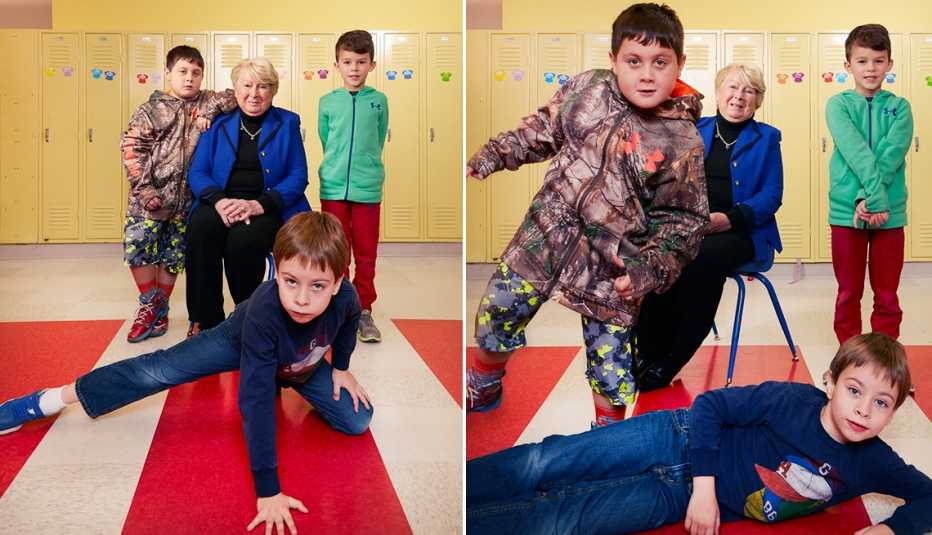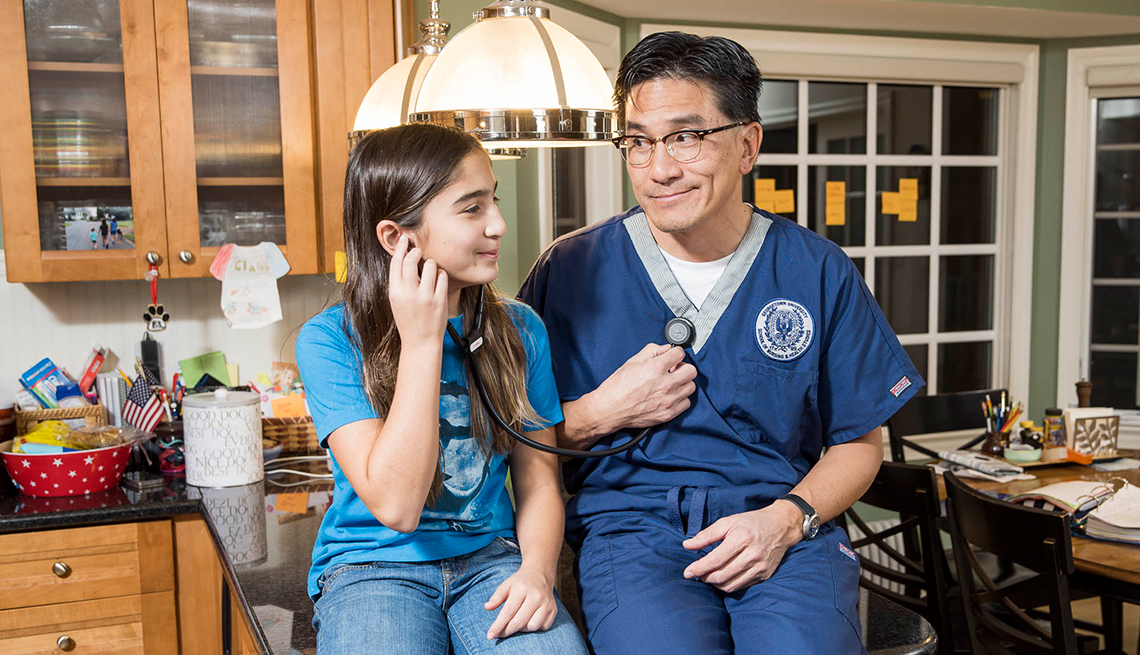Staying Fit
Each year, hundreds of thousands of students who are age 50 and older go back to school. They get degrees to change careers, to go further in the ones they started years ago or to explore long-held passions.


Caryl Gobel was in her 50s, taking bets at a Las Vegas casino, when she decided to return to school for a master's degree in social work. Now 69, she works with homeless disabled veterans through the U.S. Department of Veterans Affairs in Phoenix. "I have a job that pays more and that I really enjoy," she says.


AARP Membership— $12 for your first year when you sign up for Automatic Renewal
Get instant access to members-only products and hundreds of discounts, a free second membership, and a subscription to AARP the Magazine.
Sheelah Brown was 64 when she earned her Ph.D. in education. She increased her salary and had the satisfaction of contributing important research to the field of remedial reading instruction. Now 83, she recently announced her retirement from her position as an assistant principal.
Sometimes the payoff is more personal than financial. Gail Markland, 52, a hairdresser in Chapel Hill, N.C., earned her bachelor's degree in 2015. She has the option to go into teaching, but for now the degree hangs on her salon wall, providing a source of confidence and pride.
Of course, a return to school usually carries financial risk. There's no guarantee that a degree will increase earning power enough to justify the expense. If you're considering such a move, ask yourself these six questions.
1. Does the field you want to go into have a vibrant job market with plenty of well-paid openings?
You don't want to be surprised by a dearth of jobs or lower-than-expected pay, warns Barbara Vacarr, director of the higher education initiative at Encore.org, a nonprofit dedicated to engaging older adults in meaningful work.
That's what happened to Mary Donahue, 54, a Washington-based social worker. After being laid off as an administrative assistant in the early 2000s, she went back to school to earn a bachelor's degree in early childhood education and then a master's in social work. Her private psychotherapy practice currently nets about $60,000 a year—less than she would likely be earning had she continued as an administrative assistant, she says. She also has $120,000 in student debt.
2. Do you plan to keep working for many years (at least 10) after earning your degree?
Lydia Frank, a vice president at PayScale, a Seattle-based compensation data firm, says older returning students need to consider whether there is time to pay off a degree in the number of years they plan to continue working—and also see some meaningful monetary return. If your education debt exceeds $50,000, she says, it's likely that "you're just not going to have enough years left in your working career to pay back what you spent on the degree."
3. Do you have enough savings to pay for the bulk of the expense of going back to school?
If not, grants and scholarships can help offset the expense and minimize loans. The website Fastweb makes it easy to search for scholarships that apply to older students. Some state schools, such as the University of Delaware, offer free or discounted tuition for older students. If you must borrow, look first at federal student loans, which offer lower interest rates than private student loans.
To protect yourself from worst-case scenarios, "look for a lender who will waive remaining payments if you die or become disabled," suggests Ellen Roberts, a spokeswoman for Sallie Mae, a student loan company. Some employers also offer educational subsidies or loan repayment plans.
Gain in-demand skills with AARP Skills Builder for Work. Try a free course today.
4. Is there a low-cost certificate program available in your area?
Claire Keyles, 61, used the Pace University Encore Transition Program in New York to switch from a successful career as a corporate lawyer into a part-time position as a deputy compliance officer at a nonprofit that helps those who were previously incarcerated.

































































